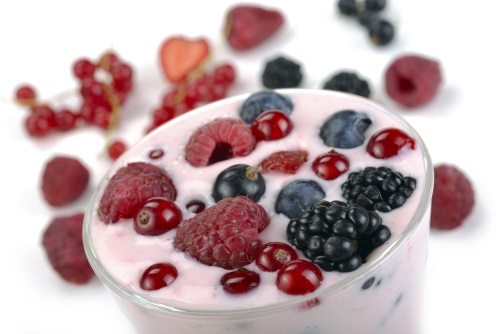Experts from policy, academia and industry convened during a satellite session at the American Society for Nutrition’s 2013 Advances and Controversies in Clinical Nutrition Conference in Washington, US on December 5, 2013, to review new and existing evidence underscoring the positive effects of cranberry consumption.
Long associated with urinary tract health, the latest research on the polyphenol-rich fruit bears weighty considerations in advance of the 2015 Dietary Guidelines for Americans.
Cranberries in diet
Research findings demonstrate the potential value of incorporating polyphenol-rich foods like cranberries into the diet, particularly as individuals worldwide struggle to meet suggested nutritional recommendations, said David Baer, Ph.D., USDA-Agricultural Research Service Beltsville Human Nutrition Research Center.
According to data presented at the session, simply adding eight ounces of cranberry juice per day or one serving of dried cranberries to consumers’ diets would nearly double the US population’s intake of flavonoids, a category of polyphenols found in colorful fruits and vegetables linked to improved cardiovascular and cellular health as well as reduced inflammation.
Rich in nutrients like polyphenols, 100g of cranberries contain more polyphenolic antioxidants than the equivalent amount of strawberries, broccoli, white grapes, bananas or apples.
Urinary tract health
Presenters also touched on the role of cranberries in addressing urinary tract infections (UTIs), the second most common bacterial infection, which poses a significant public health challenge in the US.
With more than 15 million reported cases of UTIs in the country per year, the infection accounts for $8.28 billion in healthcare costs.
Kevin C. Maki, Ph.D., Biofortis, the clinical research arm of Mérieux NutriSciences, presented a review of more than 50 years of research connecting cranberry consumption to improved urinary tract health, illustrating that cranberry products are backed by many clinical trials, including some recent positive trials.
Furthermore, a recent review published in Advances in Nutrition concluded that the connection between cranberries and decreased recurrence of urinary tract infections is important because a nutritional approach to the condition could lower the use of antibiotic treatment and the consequent development of resistance to these drugs.
The session also touched on lesser-known but important benefits of cranberry consumption, such as an emerging correlation between cranberries and improved heart health.
Janet Novotny, Ph.D., USDA Agricultural Research Service Beltsville Human Nutrition Research Center, presented findings based on a double blind placebo controlled clinical study which found that subjects drinking low calorie cranberry juice cocktail had significantly lower C-reactive protein and diastolic blood pressure than subjects on a placebo beverage.
She said cranberries have long been studied for the positive impact on urinary tract health, but that more recent studies indicate that the fruit, because of its high concentrations of flavonoids, can help promote cardiometabolic markers and help maintain cardiovascular health, including lowering blood pressure.
Cranberries in a balanced diet
Rounding out the symposium was a study using the CDC National Health and Nutrition Examination Survey (NHANES) data which found that adult (19 years) cranberry juice consumers who drink an average of two glasses (14 fl. oz.) of cranberry juice over two non-consecutive days have better cardiometabolic profiles than those who do not consume the beverage.
Of note was the association between cranberry beverage consumption and lower waist circumference as well as the tendency to be less overweight or obese when compared to non-consumers of cranberry, showing that cranberry beverages can be consumed as part of a healthy, balanced lifestyle.
Of the groups evaluated, each demonstrated significantly lower odds of having high C-reactive protein levels, a marker of inflammation.
Data from a controlled clinical trial presented at this meeting provided additional support for this finding.










